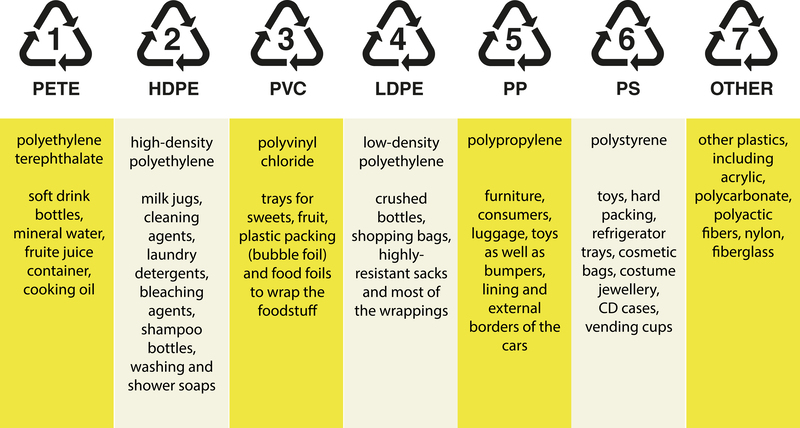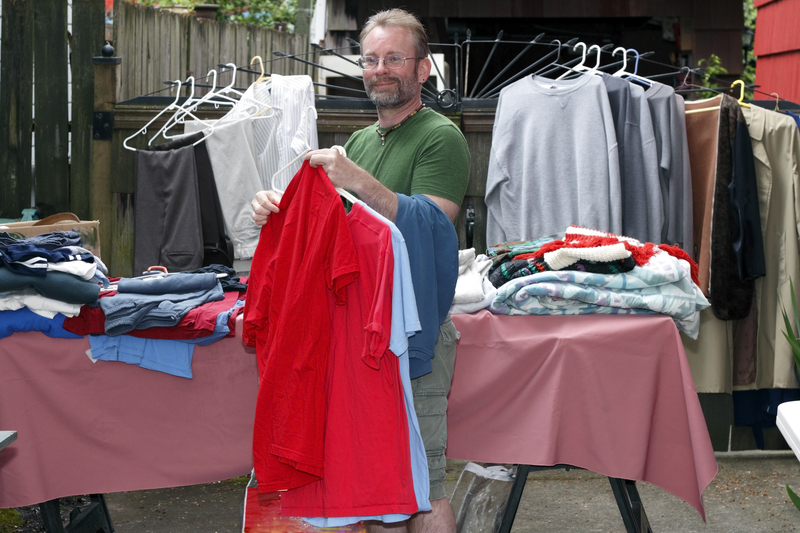Incorporating Recycling Lessons into Homeschooling Activities
Homeschooling provides a unique opportunity for parents and educators to shape well-rounded individuals with a strong sense of responsibility -- not only to themselves but also to the environment. One way to foster this awareness is by incorporating recycling lessons into homeschooling activities. Teaching kids about recycling, waste management, and eco-friendliness helps them develop lifelong sustainable habits. In this comprehensive article, we'll explore creative strategies, activities, and practical tips for weaving recycling education seamlessly into your homeschooling curriculum.
Why Teach Recycling in Homeschooling?
The importance of environmental education for children can't be understated. Recycling lessons for homeschoolers go beyond just sorting items into bins; they lay a foundation of environmental stewardship, critical thinking, and community responsibility.
- Empowers children to understand waste reduction and resource conservation
- Encourages creative problem-solving through hands-on activities
- Inspires a lifelong commitment to sustainability
- Connects abstract science concepts to real-world applications
- Prepares students to be informed, responsible global citizens
By weaving recycling education into homeschooling projects, parents can nurture eco-conscious behaviors while meeting academic goals.

How to Introduce Recycling Concepts in a Homeschool Setting
When you incorporate recycling lessons into homeschooling activities, it's essential to go beyond lectures and worksheets. Hands-on, interactive, and inquiry-based teaching approaches are the keys to creating meaningful and memorable learning experiences. Here's how you can start:
Start with the Basics: What is Recycling?
Begin your unit by exploring the fundamental question: What is recycling? Use visual aids, videos, and simple experiments to illustrate the concept. Discuss the journey everyday items take--from the moment they become waste to their transformation into new products.
- Define waste, recycling, reduce, reuse, and recover
- Watch videos on how glass, plastics, or paper are recycled
- Show before-and-after items (e.g., a plastic bottle and a recycled fleece jacket)
Hands-On Sorting Activity
Children learn best by doing. Set up a home recycling center and have kids practice sorting household waste into categories: paper, plastic, glass, metal, and compost. This simple sorting is the foundation of recycling lessons at home.
Integrating Recycling Into Core Subjects
One of the strengths of homeschooling is the ability to integrate multiple subjects. Recycling education for homeschoolers fits naturally with:
- Science: Study decomposition, the life cycle of products, and the environmental impact of waste.
- Math: Track household waste quantities, graph improvement, calculate energy saved by recycling.
- Language Arts: Write persuasive essays or stories about recycling; create posters or public service announcements.
- Art: Create "upcycled" crafts from materials headed for the recycling bin.
- Geography: Map local recycling facilities and learn about recycling in different countries.
Creative Recycling Projects and Homeschool Activities
Looking for innovative ways to bring recycling lessons for your homeschoolers to life? Here is a selection of engaging, educational projects:
DIY Upcycling Crafts
- Plastic Bottle Planters: Cut bottles to create small pots, decorate, and plant seeds.
- Paper-Mache Bowls: Use old newspaper and flour paste for sculpting.
- Cardboard Creations: Build castles, robots, or organizers with boxes and tubes.
Home Recycling Audit
Have your children keep a recycling diary for a week. Track what you recycle, compost, or send to landfill. Graph the data and set family goals for reducing waste. Discuss ways to improve your recycling habits.
Composting Experiment
Introduce children to composting by starting a simple bin with kitchen scraps. Explore which materials break down quickest, observe changes over time, and use finished compost in your garden.
Visit a Recycling Facility (Virtually or In-Person)
Arrange a tour of a local recycling center or watch virtual walkthroughs online. This offers firsthand insight into the scale and process of recycling, making the lesson more tangible.
Create a Recycling Board Game
Have your homeschoolers design and build a board game based around recycling rules, separating waste, and collecting points for making sustainable choices.
Resources for Homeschooling Parents: Recycling Curriculum and Materials
Incorporating recycling education for homeschoolers is easy, thanks to a variety of free and paid resources:
- EPA's Educational Resources - Lesson plans, posters, and games for different age groups
- National Geographic Kids: Recycling - Articles and video content that explain recycling worldwide
- Recycle Everywhere: Learning Resources - Activities, coloring sheets, and challenges
- Local city or county recycling offices - Often provide presentations, pamphlets, and facility tours for homeschool groups
Tips for Success: Making Recycling Lessons Engaging
- Relate lessons to real life: Connect recycling to kids' daily routines for meaningful context.
- Get creative: Use art, music, or drama to reinforce recycling concepts.
- Encourage goal setting: Set family recycling or waste reduction targets.
- Make it social: Invite other homeschooling families to join virtual recycling challenges.
- Celebrate successes: Praise kids for their efforts and positive changes.
Real-World Recycling Activities for Homeschooling Families
It's vital to reinforce recycling lessons at home with real-world activities that allow students to apply their knowledge and skills. Here are several suggestions designed to spark creativity, reinforce key concepts, and nurture a lifelong commitment to sustainability.
Start a Homeschool Recycling Club
Form a club with friends or the local homeschooling network to tackle community projects. Ideas include:
- Collecting used batteries or electronic waste for safe disposal
- Organizing a community clean-up day
- Setting up recycling bins at public events
- Leading presentations or workshops about recycling for younger children
Host a "Trash to Treasure" Challenge
Encourage learners to transform "waste" into something beautiful and functional. See who can come up with the most creative or useful item from a box of recyclable materials. This encourages design thinking and innovation.
Advocacy and Community Involvement
Broaden your recycling curriculum by teaching students to become advocates. Compose letters to local leaders about improving recycling programs. Attend city council meetings or participate in community decision-making regarding waste policies.
Connect with Nature
Recycling is part of a larger environmental story. Plan nature walks, study ecosystems, and discuss how recycling protects wildlife habitats and conserves resources.
Benefits of Recycling Lessons in Homeschooling
The advantages of teaching recycling at home extend far beyond environmental awareness. Children develop:
- Problem-solving skills: By tackling real environmental challenges, kids learn to think critically.
- Leadership qualities: Organizing recycling drives or presenting to peers boosts confidence.
- Academic integration: Tying recycling to math, science, arts, and language makes learning multi-dimensional.
- Ethical responsibility: Kids see their role in creating a better world.
Adapting Recycling Lessons for Different Ages and Learning Styles
Every child is unique. Incorporating recycling education into homeschooling allows you to differentiate lessons to suit your child's age, developmental level, and interests:
-
Early Learners (Ages 4-7):
- Read picture books about recycling
- Sensory sorting of recyclables (touch, color, sound)
- Simple upcycling crafts (paper roll binoculars, egg carton critters)
-
Elementary (Ages 8-11):
- Introduce the science of decomposition with experiments
- Track household waste and calculate reductions
- Design creative recycling posters or stories
- Participate in local recycling campaigns
-
Teens (Ages 12+):
- Debate recycling policies and their effectiveness
- Research global waste management challenges
- Design recycling solutions or prototypes
- Lead community education efforts
Overcoming Challenges in Teaching Recycling at Home
While incorporating recycling lessons in homeschooling is rewarding, parents may face challenges such as skepticism about the importance of recycling, confusion about local rules, or a lack of access to facilities. Here's how to overcome common obstacles:
- Stay informed: Learn about local recycling guidelines and proper sorting techniques.
- Model enthusiasm: Children mirror adult attitudes. Be positive about recycling and share your "why".
- Encourage questions: Let kids ask tough questions and research answers together.
- Make it accessible: Set up labeled bins in convenient places to simplify recycling habits.
- Be patient: Sustainable change is gradual. Celebrate progress, not perfection.

Conclusion: Raising Eco-Conscious Learners at Home
In today's world, incorporating recycling lessons into homeschooling activities is vital for raising environmentally responsible future leaders. By embedding these lessons into your curriculum, you not only cover important educational standards but also equip your children with the tools to make positive, lasting impacts on their communities -- and the world.
Make recycling a natural part of your family's everyday life. Through creative projects, real-world applications, and community engagement, your homeschoolers will not only learn how to recycle -- they'll learn why it matters. This is how we plant seeds of stewardship that will grow for a lifetime.
Further Reading and Useful Links
- Kids Against Plastic - Youth action resources and campaigns
- Plastics Make it Possible - Educational Resources
- CalRecycle: Environmental Education Curriculum
By following the suggestions in this guide, you'll transform your homeschooling journey into an exciting, eco-friendly adventure -- one recycling lesson at a time!